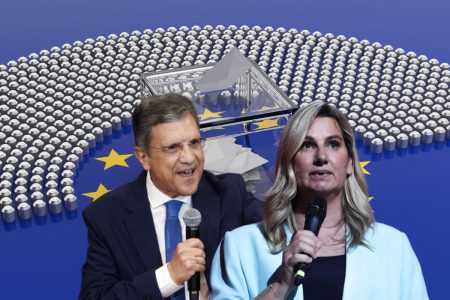At the dawn of 2014 there were more than enough agonies, but there were also a glimmer of hope that excited many.
In January 2014 there were many who highlighted the major importance of the political problem and associated the further complication of the political cycle with the European elections of May.
On the other hand, while expecting confirmation of the primary surpluses, even more cultivated expectations of returning to the markets and the swift normalization of financial circumstances.
In spring of 2014, after the degree of fiscal consolidation was proven, the credit agencies upgraded the Greek economy, allowing the Ministry of Finances to successfully organize the country’s return to the markets. The truth is that the country benefited from the international climate of euphoria at the time, which gave Greece the money it need with ease. That is more or less how the optimistic expectations of direct funding from the international markets were cultivated.
However, the political problem was lurking and was highlighted in the European elections.
While SYRIZA’s victory fell short of the party leadership’s expectations, it shattered the faith in New Democracy and spread doubt within its interior regarding the strength and abilities of the government alliance.
SYRIZA took notice and sought to take advantage of it, by stating that it would not consent to the election of a new President of the Republic, limiting the government’s lifespan to March 2015.
Therefore, at the end of May 2015, the virtuous economic cycle was superseded by a political cycle, which had a corrosive effect on the government and implementation of the economic program.
After the European elections, having sensed the pressure and political impasse, Mr. Samaras wanted to replace the effort in finances with political means and tools.
He was fooled by the markets, believed that the circumstances in the international markets would remain stable and probably did not take into account their volatile nature, especially during times of upheaval, when Mr. Samaras wanted to play the so-called “political card”.
At the point he began to herald the end of the bailout, speak of the International Monetary Fund’s departure and touted the Greek economy’s ability to return to the market on its own.
He failed to estimate correctly how the IMF acted as a guarantor for the markets. Worst of all, by playing the “political card”, he essentially abandoned the implementation of what he had promised and entered an endless negotiation for concluding the bailout program.
The summer went by rather smoothly, as the major tourist wave generated optimism. By fall though things seemed more complicated.
Early on the markets began to express their doubts and suspicions, the interest rates increased, finding new sources of funding to even renew maturing treasury bills because hard and of course, in wanting to put more pressure on the situation, SYRIZA presented a program of measures and reforms. This program may addressed the popular demands and accumulated social needs, but it also created the impression abroad that Greek politicians are capable of blowing everything up at the first opportunity.
The truth is that SYRIZA’s proclamations put further pressure on the government and was essentially immobilized as far the implementation of the program goes. This is something that Greece’s creditors and partners, as well as the markets, picked up on.
So the suspicion came back with a vengeance, the doubts were amplified and as such, the negotiations stalled.
Our side defended the progress that had been achieved, while the other side demanded more, expecting that the country would head to elections, meaning that the fiscal reform efforts would slow down and not carry on.
When the Minister of Finances Gikas Hardouvelis informed Christine Lagarde of the government’s request for the suspension of the IMF’s involvement in Greek financial affairs, then all bridges of communication were cut off.
That is when the impasse was fully revealed and the strategy of political tools failed.
There was no turning back though. The political cycle and its consequences had to conclude.
So that is how the political problem blossomed, the presidential election was brought forward and consequently – after three failed votes in Parliament – early elections were called.
2014 started with the political problem barely visible and ended with the political problem peaking. The tragedy at sea with the Norman Atlantic came to further highlight the state inefficiencies, reveal weaknesses and spread doubt and pessimism amongst the Greek people, who have no idea what do and where to go.
The “hopeful” 2014 ends with the bad prospects, leaving a heavy legacy for 2015.
The first 25 days in 2104 will be purely political.
They will be dominated by heroic election campaign rhetoric.
Some will be allowed to live with their delusions a little bit longer, but the financial problem will return with a vengeance.
Possibly even during the election campaign period.
To confirm that the repeating, vicious political and financial cycle still stands strong.
If this corrosive relationship does not end, then Greece will once more find itself in serious danger in 2015.
Antonis Karakousis





